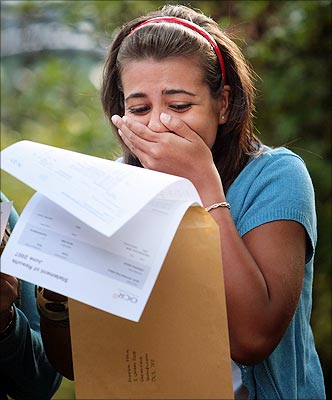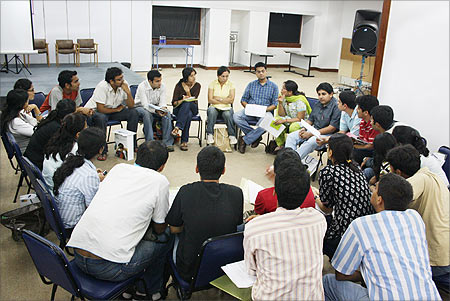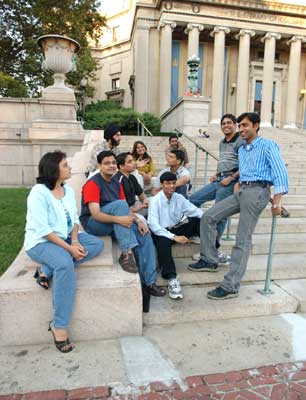
Roma* says she has been depressed since the time she was denied entry into an engineering college by her parents.
She has been on medication for the last 15 years. "I showed signs of depression as soon as I took to pursuing my normal (science bachelors) education. I could have got into engineering, but my parents said a girl cannot be an engineer," she says.
Roma has not forgiven her parents. Maybe that is the reason her depression has never really been cured. "I realised I needed help when I just started looking at everything very negatively. I even attempted suicide...that's when I knew I had to get help," she adds.
Dr Harish Shetty, well-known psychiatrist says, "Normally depression is episodic. You give the person medication during the episode and things should be fine."
Roma's reason is just one of the scores of reasons why teenagers in the country today are taking recourse to suicide. Pressures on teenagers today are at an all-time high. It's no wonder then that depression among teens is a growing reality. This is the group between 13-20 years of age and they need help.
*Name changed to protect privacy.

Here are some of the most common reasons:
These reasons can disturb the mental health of the teenager and one of the fall-outs could be depression.

These are the initial symptoms. Sometimes depression is exhibited when a child runs away from home, talks of death, attempts suicide.
This is when friends and parents should sit up and take notice, says Dr Shetty.

"Parents should not be scared of medication. Depression is due to the lack of something in the brain... for example, anemia is caused due to lack of hemoglobin. You need to take iron to get rid of anemia. Same way to get rid of the deficiency in the brain, you need to take medication," says Dr Shetty.
According to him, depression is the fracture of the mind and one would need to take time and medication to recover from it. "The most important thing parents and friends can do is be supportive and attentive," he says.
The other group that can participate actively is the peer group. Most teenagers spend a lot of time with their friends. Therefore, before the parents realise what is happening, it is friends who can quickly pick up on negative behaviour. They can then reach out to either the parents or teachers.
Renu B*, whose 15-year-old committed suicide just before the Class X examinations four years ago, says, "He was with his friends. Then he came home and hanged himself. Sometimes I feel if his friends would have told us that he was disturbed, we would have our son with us today. And then, we feel that maybe we all could have just tried to listen to him more."
Parental and social support ensures that the healing happens quickly and the teenager can then get back to normalcy in a short time.
What you need not do
Don't run to the astrologer if your child is exhibiting unusual behaviour, says Dr Shetty.
"My greatest rivals are not my fellow psychiatrists but astrologers," he laughs, "Doing shanty, kula daivat prayers is not going to help the teenager. Do all this if you must, but also see that your child is undergoing treatment with a psychiatrist or a school/ college counsellor."
Help at your fingertips
Here are a few numbers that offer help to troubled teenagers: